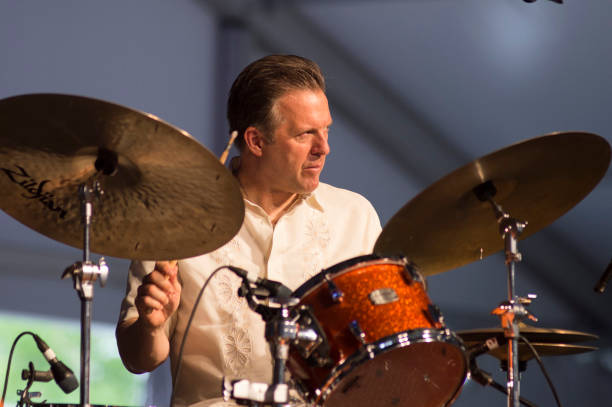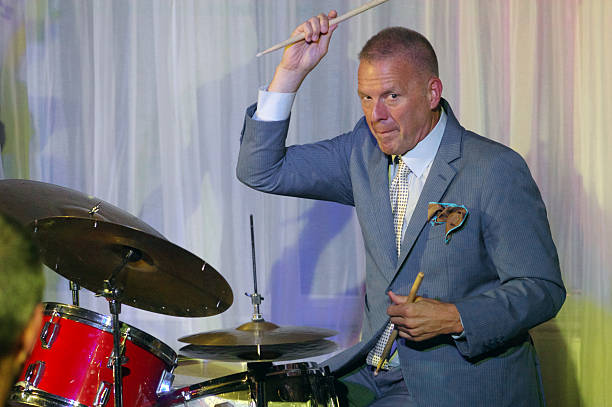For more than three decades, Joe Farnsworth has kept time with purpose. His drumming has supported legends, shaped sessions, and filled rooms with swing and soul. He has played the clubs of New York, recorded with masters like McCoy Tyner and Pharoah Sanders, and carved out a reputation built not on flash, but on feel. At this point in his life, Farnsworth is still driven, but his attention has shifted. He now looks forward, not just to his next performance, but to the musicians coming up behind him.

Joe Farnsworth grew up in South Hadley, Massachusetts, in a family where music was part of everyday life. He studied with drummers like Alan Dawson and Art Taylor, but much of his learning happened on the bandstand. The long nights, the unexpected solos, the conversations between instruments: that is where he found his voice. Over time, that voice became a signature in the New York jazz scene. It is clean, strong, deeply rooted in tradition, yet always responsive to the moment.
At 56, he remains active, and his latest record, The Big Room, shows that his passion is far from fading. The album features younger artists like Emmet Cohen, Joel Ross, Sarah Hanahan, Jeremy Pelt, and Yasushi Nakamura. It is more than just a collection of tracks. It is an open invitation. Farnsworth describes the big room as a space where musicians of all ages come together with respect, curiosity, and no need to prove anything. The record reflects that philosophy, each song is a conversation, not a contest.
Off the stage, he has become a mentor in the truest sense. Whether leading masterclasses or sitting down with students after a set, he gives time and energy freely. His teaching style mirrors his playing: steady, thoughtful, honest. He does not tell young musicians what to play. He encourages them to listen, to respond, and to trust their instincts. He believes jazz is about connection, not control.
Farnsworth does not chase trends, and he does not try to relive the past. He stays rooted in the present. He listens to what is happening around him and makes space for it. That presence, that willingness to step back and let others shine, has become one of his most valuable qualities. He leads without forcing. He teaches without preaching.
In the company of younger musicians, he does not stand apart. He stands with them. In rehearsal, in performance, and in conversation, he brings clarity, not just in rhythm, but in spirit. He reminds others of what the music can be: generous, honest, alive.
Joe Farnsworth may not be the loudest voice in the room, but what he offers carries weight. His drumming speaks for itself, but it is the way he listens, supports, and guides that defines this chapter of his life. He is keeping the beat, yes, but he is also passing it on.
